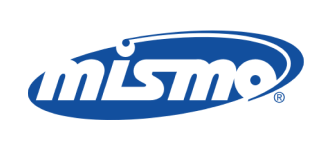WEBINAR
The Spectrum of Digital Mortgage Closing Eligibility
Takeaways from the 2021 Mortgage Innovators Conference
This article is part of our educational series on the five key factors that determine how digital your mortgage closings can be, known as e-Eligibility. For more information, download the full eBook.
Digital mortgage closings fall on a spectrum. That’s the overall takeaway we shared during a webinar at the 2021 Mortgage Innovators Conference. In order for digitizing mortgage closings to truly scale for lenders, their closing solution needs to meet them where they are. A one-size-fits-all approach doesn’t work, because the degree to which a closing can be digitized varies loan-by-loan.
Factors like the loan’s investor, loan type, property location, and other counterparty or stakeholder policies and capabilities, can all impact the mortgage closing. And, many of these factors are outside of lenders’ control. We explored these factors in a recent ebook, “The Five R’s of e-Eligibility.” e-Eligibility—the circumstances that influence whether and to what extent a mortgage closing can be closed digitally—is typically made up of five factors:
- Counterparty Requirements
- County Land Recording
- Title Underwriter Restrictions
- eNotarization Regulations
- Settlement Readiness
Each of these factors ultimately affects what closing type will be appropriate for the transaction. And while there are countless permutations of closing types, they typically fall into three core categories:
- Wet-Ink Closings: In a Wet-Ink Closing, all of the closing documents are printed on paper and signed and notarized in ink. However, lenders may still use some digital components, ranging from automated workflows or notifications to enable the borrower to preview their closing documents before attending the in-person closing appointment. While lenders gain some efficiencies from a digitally-enabled wet closing, they will not realize the benefits from eSigned closing documents or virtual closing appointments.
- Hybrid eClosings: In a Hybrid eClosing, at least one or more closing documents are eSigned and the remainder are wet-ink signed. This means that the borrower might be able to eSign some portion of the closing documents before the in-person closing appointment. Hybrid eClosings might involve eNotarization, depending on whether any documents requiring notarization are eSigned. And hybrid eClosings can also include eNotes, if the promissory note will be eSigned.
- Full eClosings: In the best of circumstances, when all five e-Eligibility factors align, lenders may fully digitize the loan closing process. In a Full eClosing, all closing documents are eSigned and eNotarized, and the paper promissory note would be replaced with an eNote. The closing appointment may occur in-person or remotely, using IPEN or RON respectively.
If it sounds like digitizing mortgage closings is complex, you’d be right. And if it also sounds like something that’s manageable for today’s lenders, that’s also true. Whether it’s a Wet-Ink Closing or a Full eClose, at its core, mortgage closing is about leveraging data to make better lending decisions.
Watch the webinar here to learn more about the spectrum of closing eligibility.
If you’re ready to scale your digitization, we’ve created a framework to help you track the numerous challenges and factors to consider. Download our ebook, The 5 Rs of e-Eligibility for Mortgage Closings, to learn more.
Speaker
Camelia Martin
Head of Industry & Regulatory Affairs at Snapdocs
Camelia Martin, Head of Industry & Regulatory Affairs at Snapdocs Camelia Martin has over 16 years of experience in mortgage finance technology. As Head of Industry & Regulatory Affairs at Snapdocs, she collaborates with a broad spectrum of industry participants to advance the adoption of digital mortgage closings. Martin has focused expertise in the use of eNotes (electronic promissory notes), and throughout the course of her career she has led a number of digital mortgage initiatives which directly supported programs for key stakeholders such as Ginnie Mae, the Federal Home Loan Banks, and the Mortgage Industry Standards & Maintenance Organization (MISMO). Prior to joining Snapdocs, Martin held senior leadership roles at Falcon Capital Advisors and MERSCORP Holdings, now ICE Mortgage Technology. Martin was selected as a 2020 HousingWire Woman of Influence in recognition of her efforts to accelerate the industry’s adoption of digital mortgage closings. She also currently serves as a Senior Advisor to MISMO, and as Co-Chair of MISMO’s Remote Online Notarization Standards and eNote/eVault Interoperability Committees.






